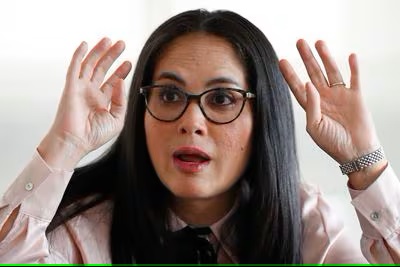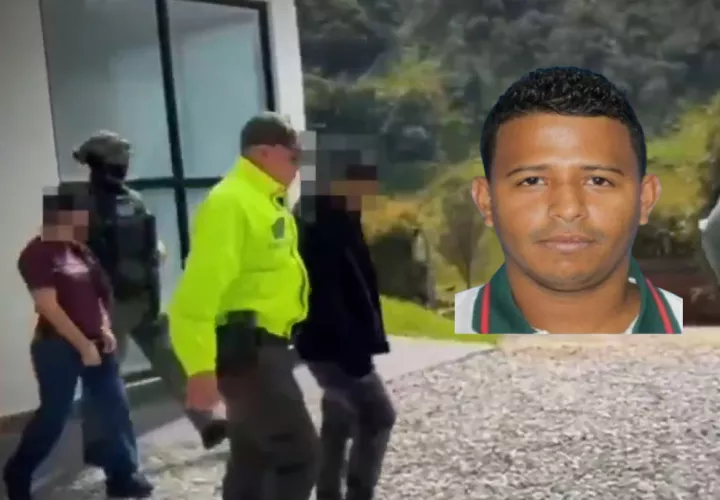The Zulay Rodríguez Story – Part 3

Presidential candidate Zulay Rodríguez Lu has been facing Panamanian justice recently for an alleged appropriation of a client’s gold bullion, about 66 kilos worth. The Supreme Court will determine whether she is charged in the case from more than a decade ago, where this 4 to 5 million dollars’ worth of gold ended up in her possession to pay a bill for her legal services. The candidate for Panama President, Zulay Rodríguez Lu, denounces this act in the justice system as political persecution.
A new 3rd attempt to carry out the hearing to bring charges against the still deputy Zulay Rodríguez, for the alleged appropriation of 66 kilos of gold belonging to the deceased Mexican goldsmith José Luis Penagos failed. Added to the uncertainty about whether or not the Supreme Court of Justice (CSJ) has the jurisdiction to prosecute Rodríguez, is that neither the deputy nor her lawyer Ángel Álvarez, have appeared. The two previous appointments (February 29 and March 7) were also suspended because Rodríguez never attended. Now not even her lawyer showed up, so the session was declared closed. Article 278 of the Criminal Procedure Code indicates that the accusation hearing cannot be held if the investigated subject and his lawyer are not present. Therefore, Judge Ariadne García, acting as guarantee judge, closed the session.
Judge Ariadne García, judge of guarantees in the case against Deputy Zulay Rodríguez for the alleged appropriation of 66 kilos of gold, did not admit an extrajudicial agreement agreed by the family of the deceased Mexican goldsmith José Luis Penagos. The magistrate judge explained that the investigation is in a preliminary phase and that not even the accusation phase has yet been completed. In fact, the impeachment hearing was scheduled, but it could not be carried out because Rodríguez did not appear and because the Supreme Court of Justice has not yet decided on two warnings of unconstitutionality presented by the deputy. García added that once this phase is completed, the compensation agreement agreed between Rodríguez and the Penagos family, plaintiffs in this process, could be analyzed.
There was the fourth attempt by the Supreme Court of Justice to charge her with the alleged commission of the crimes of money laundering, abuse of trust, illicit association to commit a crime and against the administration of justice. The three previous appointments (February 29, March 9 and March 15) were suspended. Rodríguez attended none of those hearings. She argued that she resigned as a deputy as of February 26 and, therefore, the Court no longer has jurisdiction to prosecute her. However, the National Assembly informed the Court in writing that the process to formalize her resignation has not been completed and, therefore, Rodríguez remains a deputy. The negotiation between Rodríguez and Juan David Penagos, son of José Luis Penagos, was reported at the hearing. Penagos Jr. participated via Zoom. Lawyer Ángel Álvarez appeared for the defense. Once the event began, the Penagos’ lawyer, Edwin Córdoba, informed Judge García that his clients had agreed on a “compensation agreement” with the deputy.
On April 3, the deputy legal defense, and current presidential candidate for free nomination, Zulay Rodríguez Lu announced that she had reached an out-of-court agreement with the plaintiff, the family of the deceased Mexican José Luis Penagos, in the gold bullion case. Judge Ariadne García, acting as guarantee judge, declared the request for withdrawal from the parties in the aforementioned agreement inadmissible. After this decision of inadmissibility, Zulay Rodríguez indicated to the media that this agreement was suggested by the magistrates of the process.
Communiqué from the Judicial Branch
The Judicial Branch reported that ” in the face of statements that are being spread on social networks and in various traditional media, which contain a series of inaccuracies and omissions that require clarification out of respect for public opinion, which has the right to count with the greatest possible elements of judgment, so that each citizen can form a duly founded opinion in relation to matters of interest for the proper functioning of the Republic”.
The Judicial Branch pointed out 12 points: (The last point is below)
The Guarantees Magistrate decided not to admit the withdrawal, in strict legality, pointing out that, since the accusation hearing could not have been held, given the lack of appearance of the Deputy of the Republic, in this preliminary phase of the investigation, it was unknown the relevant facts, as well as what would be the criminal types that the Prosecutor would charge, so that it could be verified if they are those that admit withdrawal, in which case the possibility of applying alternative forms of conflict resolution would be opened and its effects, in accordance with the provisions of articles 280 and 281 of the Criminal Procedure Code.
Obviously the case is not closed, so coverage will continue as it happens.





